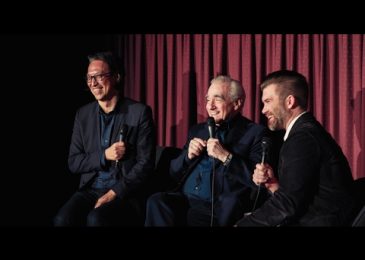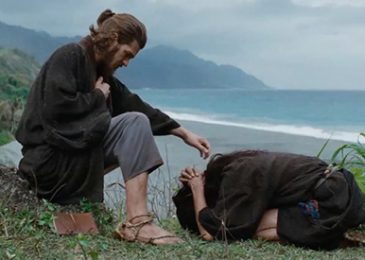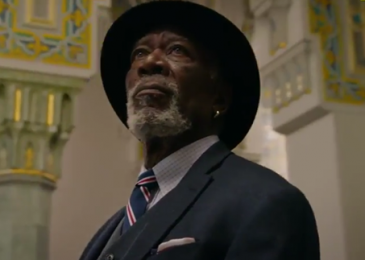Comment count
The following is a guest post from Jedd Medefind, president of the Christian Alliance for Orphans, who recently talked with one of my favorite authors, Katherine Paterson, about some issues pretty close to my own heart. I love what she has to say here. It’s well worth the read.
***
“No book made a greater impression on me before high school,” a 40-something magazine editor recently shared with me. My 10-year old daughter said much the same, “Oh, I just loved it!”
They were describing the same book, Bridge to Terabithia, by Katherine Paterson. Similar words have depicted Paterson’s other books as well, including The Great Gilly Hopkins, which traverses the hurts and hopes of a girl in foster care. Gilly hit the big screen this fall and released on DVD this week.
Like many of Paterson’s books, Gilly at first appears to be a beautiful-yet-simple children’s narrative. But along the ride, it draws us deep into heart and soul, from grief and loss to glowing hope. Little wonder Paterson is among the most honored, and beloved, of today’s living authors.
Not long ago, I had the privilege of discussing life, faith, Gilly and more with Paterson. Here’s part of the interview (and you can read the rest at the Christian Alliance for Orphans’ blog. )
Jedd: Katherine, you certainly didn’t have what people would call a conventional childhood. You grew up in China as a missionary kid. You had to flee when the Japanese invaded in 1937. Have those early experiences shaped your writing?
Katherine: I had real fear as a child when World War II began. When we moved from China to this country, I knew what it felt like to be outside. If you look at my books…they are about children who are outside for whatever reason. And those are the children I care about and write about. I want those children to know they aren’t alone.
That’s why in Gilly Hopkins I gave Gilly the most wonderful foster brother I could create. One that truly loves as God loves — loves her as she is and makes it possible for her eventually to love herself and to reach out and love other people.
Jedd: Beautiful. So what inspired you to write a novel that is rooted in the United States foster system?
Katherine: Oh, well that’s a confession of sin, Jedd. My husband and I, we have four children. Two adopted and two homemade. And many years ago – because we had two adopted children, we were asked to take in two brothers in an emergency situation. It was actually at the time when Vietnam and Cambodia fell and these kids landed at the Dulles airport with just their name tags around their necks. And the government just didn’t know what to do with them, so they asked foster care organizations in the DC area to find some foster homes until immigration could figure out what to do.
And I thought, We have four kids, six kids isn’t a big deal. Boy, did I find out differently. Of course, the boys had difficult problems in this transition. But I realized I also was the problem. I was thinking (and I never said it out loud, thank goodness), Well I can’t deal with that problem because they’re only going to be here for a short time, or Thank heaven they’re only going to be here for a short time.
And I realized that what I was doing was treating two human beings as though they were disposable. And I was so deeply ashamed when I realized that. Because you know, I thought of myself as a pretty nice person. But, here I was doing what causes people to commit crimes and start wars – I was treating other human beings as though they were disposable.
And I had to think about what I would feel like if I thought people regarded me as disposable. I decided I would be very angry. Which, you know, of course, is where the character of Gilly Hopkins starts.
Jedd: Foster care is so different than other ways of loving children or other service. It’s not like going like to a soup kitchen for two hours. It’s 24-hours a day, bringing a child into your very private spaces. How does your Christian faith shape your view of this?
Katherine: It does make you realize in a rather dramatic fashion that we’re all God’s adopted children. He only had one begotten Son, and the rest of us are all adopted and chosen by God to be loved. He still puts up with exactly who we are and He still loves us. So, isn’t that a miracle?
Jedd: Katherine, what do you feel children in foster care most need?
Katherine: Gosh, they need love. And the kind of love that has boundaries. It’s not “anything goes,” but they need a loving structure for their lives which up until that point in their lives has probably been totally chaotic and unloving. Does that makes sense?
Jedd: Yes, definitely. I very much agree… And what are your hopes for the Gilly film?
Katherine: I hope it’s going to speak to different people in different ways. People who have foster children, know foster children or adopted children, or who have had difficulties with children who have been born to them. I think it’s going to be great for families. For people who are on either side of the racial divide it’s going to be a real eye opener. For people who need to see what love in action can accomplish. For people who feel alone, maybe they won’t feel so alone. It’s just a movie that I really want the world to see. I’m maybe a little biased on this, but I do think it’s a wonderful movie.
Read the full conversation on the Christian Alliance for Orphans’ blog.
–Jedd Medefind serves as president of the Christian Alliance for Orphans. He previously led the White House Office of Faith-Based and Community Initiatives under President George W. Bush. His most recent book is Becoming Home: Adoption, Foster Care and Mentoring – Living Out God’s Heart for Orphans.
« A Game About Grief and God Wins Major AwardOriginal Article




